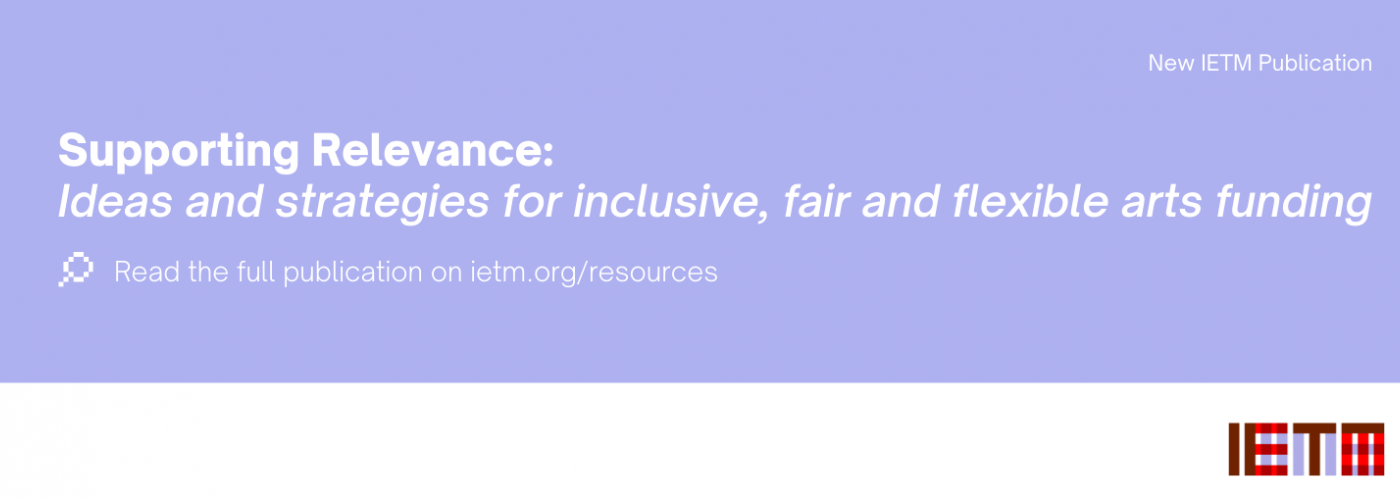
SUPPORTING RELEVANCE: Ideas and strategies for inclusive, fair and flexible arts funding
Amidst the crisis and a large-scale reflection on how not to waste this crisis, simply “more money” for the arts is no longer enough. The new publication of IETM – International network for contemporary performing arts aims to feed the current debate on funding for the arts, and offer strategies and solutions to improve the situation of the arts sector.
By means of inspiring stories, identified and refined arguments and recommendations, IETM's new publication Supporting Relevance: Ideas and strategies for inclusive, fair and flexible arts funding hopes to contribute to a larger ongoing conversation on the future of the arts sector and the place of arts funding in it. It advocates for rethinking, adjusting and upgrading models, methods and instruments of arts funding, to help the arts sector thrive and stay in tune with its values and the evolving context of today’s society.
The study unpacks the notions of inclusive, fair and flexible funding, describes the tensions that may occur when designing such funding programmes and schemes, and brings inspiration from a few case studies. It also offers a set of recommendations for funders on how to support the arts in the most relevant way.
The publication was authored by Milica Ilić and Fatin Farhat, under the editing and coordination of Elena Polivtseva, IETM's Head of Policy and Research.
Milica Ilić is a cultural worker specialised in transnational cooperation and contemporary performing arts. Milica is fascinated with collective processes of change-making in the arts and culture. She is artistic advisor and a member of the team at Onda, the French office for performing arts circulation, where she also coordinates the project RESHAPE – a collaborative, bottom-up research process that proposes instruments for transition towards an alternative, fairer, and unified arts ecosystem across Europe and the Southern Mediterranean. As a freelance consultant, she worked on numerous international cooperation, training, research and evaluation projects in the field of culture.
Fatin Farhat is an experienced arts manager, curator and policy maker. Fatin Farhat has a long and extensive experience in cultural development and the management of cultural and artistic programs and has previously served as the director of the cultural department at the Ramallah municipality. She has actively contributed to the development and establishment of numerous cultural initiatives and centres in Palestine and in the Arab region. Fatin Farhat has been involved in a series of cultural research, mapping and evaluation projects. She is a member of the Expert Facility for the implementation of the UNESCO 2005 Convention on the Protection and Promotion of the Diversity of Cultural expressions and serves on the artistic board of Al Mawred Al Thaqafi’s, Lebanon.
IETM – International network for contemporary performing arts is one of the oldest and largest international cultural networks, representing the voice of over 530 professionals and organisations working in all the fields of the performing arts in more than 60 countries worldwide. IETM advocates the value of the arts and culture and empowers performing arts professionals through access to international connections, knowledge and a dynamic forum for exchange. They work to stimulate the quality, development and context of the contemporary performing arts, in all their diversity.
